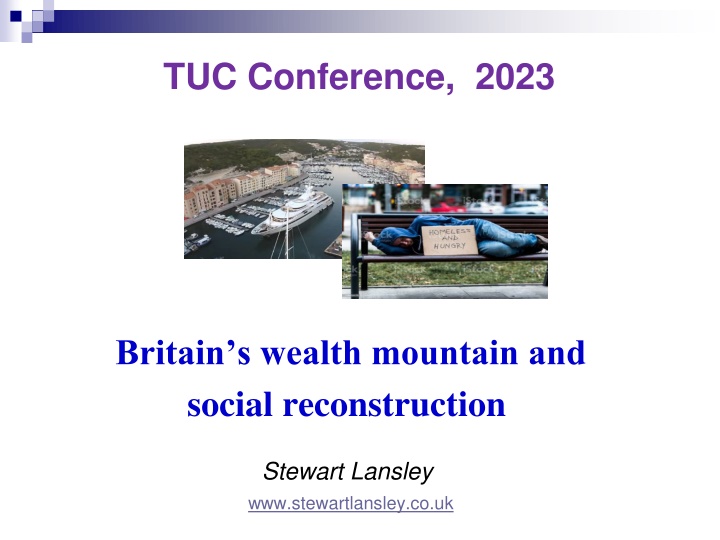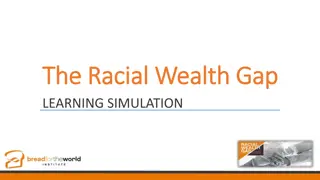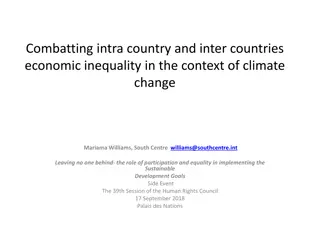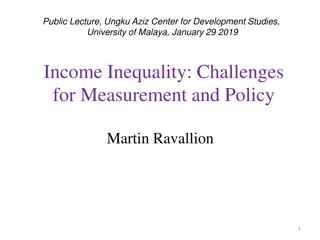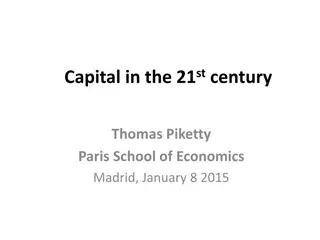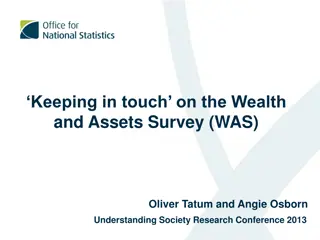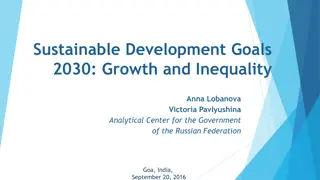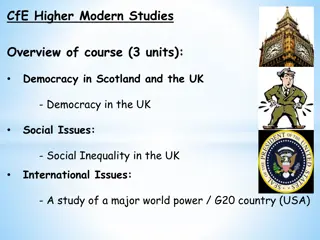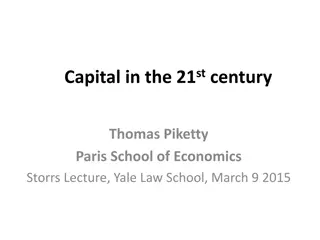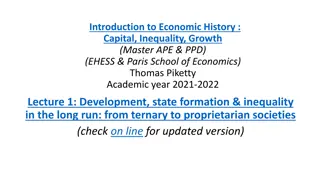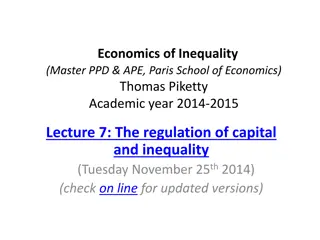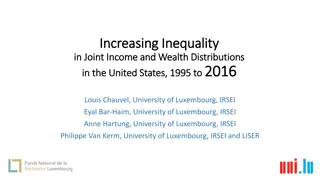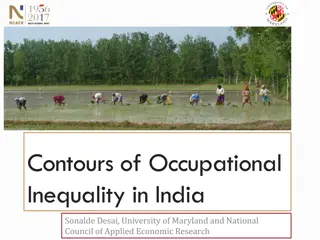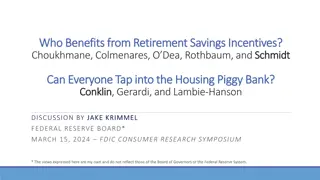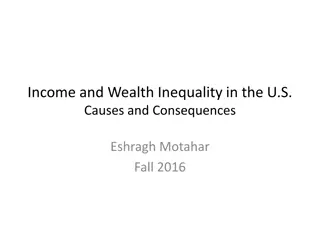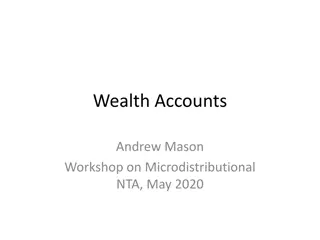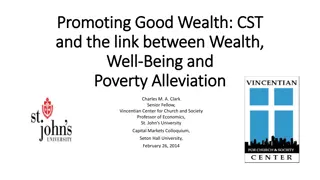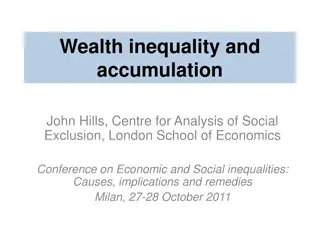Wealth Inequality and Its Impact on Society: A Comprehensive Analysis
The images and descriptions provided shed light on wealth concentration, asset distribution, and income inequality in the UK over the years. It discusses the sources and impacts of wealth inequality, highlighting the shift of resources from essential needs due to private affluence. The content touches on warnings from historical capitalism perspectives and emphasizes the crowding out effect of wealth accumulation, affecting government finances and the environment through global emissions.
Download Presentation

Please find below an Image/Link to download the presentation.
The content on the website is provided AS IS for your information and personal use only. It may not be sold, licensed, or shared on other websites without obtaining consent from the author.If you encounter any issues during the download, it is possible that the publisher has removed the file from their server.
You are allowed to download the files provided on this website for personal or commercial use, subject to the condition that they are used lawfully. All files are the property of their respective owners.
The content on the website is provided AS IS for your information and personal use only. It may not be sold, licensed, or shared on other websites without obtaining consent from the author.
E N D
Presentation Transcript
TUC Conference, 2023 http://www.toomuchonline.org/art_2014/parking-super-yacht.JPG Britain s wealth mountain and social reconstruction Stewart Lansley www.stewartlansley.co.uk
Asset rich wealth as share of economy, UK 7.5 x 8 6.5 x 7 6 5 Ratio 4 3 x 3 2 1 0 1880 1970 2019
Public v private assets, UK, 1970 2018 100% 90% 90% 80% 70% 70% % of total wealth 60% 50% 40% 30% 30% 10% 20% 10% 0% public private 1970 2018 Source: The Richer, The Poorer, How Britain Enriched the Few and Failed the Poor
Wealth concentration, UK 1940-2020 90% 83% 80% Top 10% 70% 57% 60% 47% 50% 40% Bottom 50% 30% 20% 8% 10% 5% 3% 0% 1940 2020 1990
Sources of wealth inequality Privatisation Passive accumulation` via asset inflation: John Stuart Mill called growing rich while asleep` Corporate extraction - profit rises siphoned off via dividends/ executive pay - anti-competitive devices - private equity
Nineteenth century capitalism: Warnings re extraction production of economic goods v appropriation of goods produced by others Vilfredo Pareto, 1896 market sabotage Thorsten Veblen, 1905
Impact of wealth accumulation crowding out Unearned, yet v lightly taxed Principal driver of inequality Return x luxury capitalism - econ activity skewed by over-rich class, resources deflected from essential needs Private affluence, public squalor
Impact: government made poorer (assets less debts, % of UK economy, 1970-2020) 50% 40% 40% 30% Wealth (% National income) 20% 10% 10% 0% -10% -20% -20% -30% 1970 2000 2020
Impact: on environmental crisis global carbon emissions, 2019 60% 48% 50% Share global emissions % 40% 30% 17% 12% 20% 10% 0% Bottom 50% Top 10% Top 1%
The policy response Tax rate 1.5% Politics pro-wealth tax Option 1: higher taxes: one-off solidarity tax/ higher existing wealth taxes Option 2: common ownership
Source: The Richer, The Poorer
